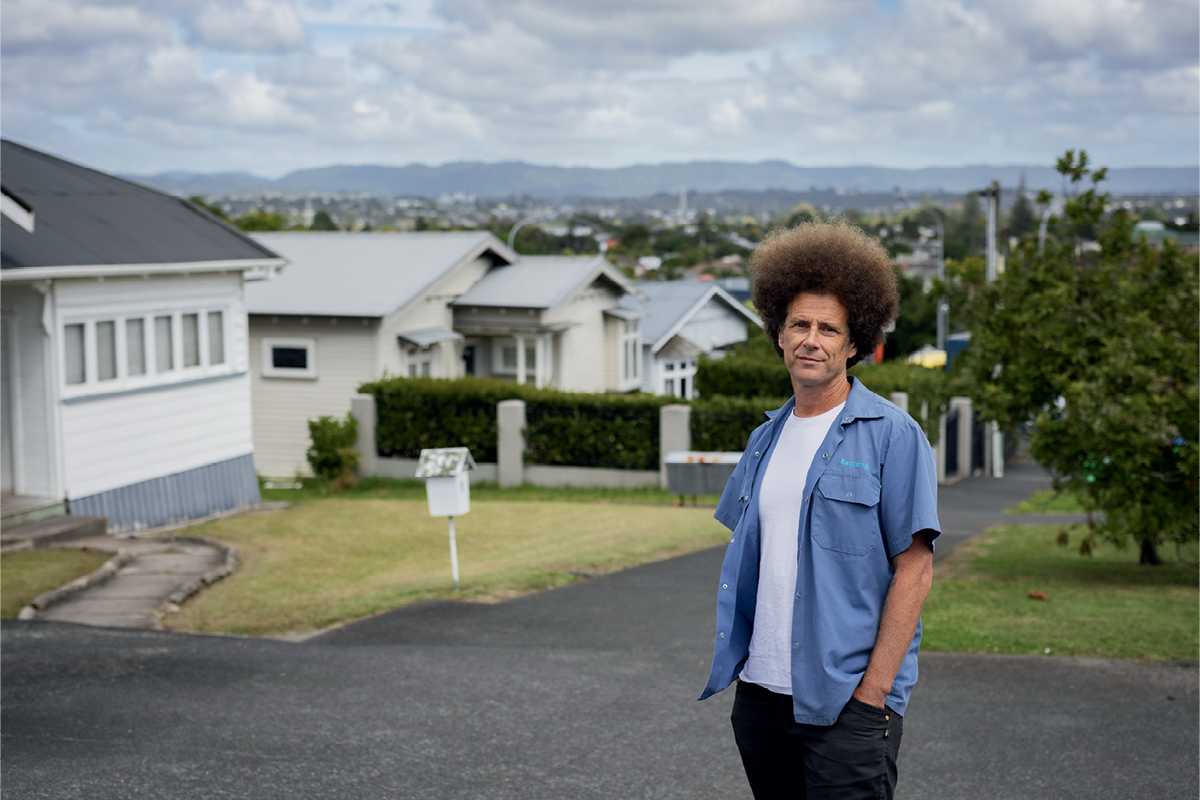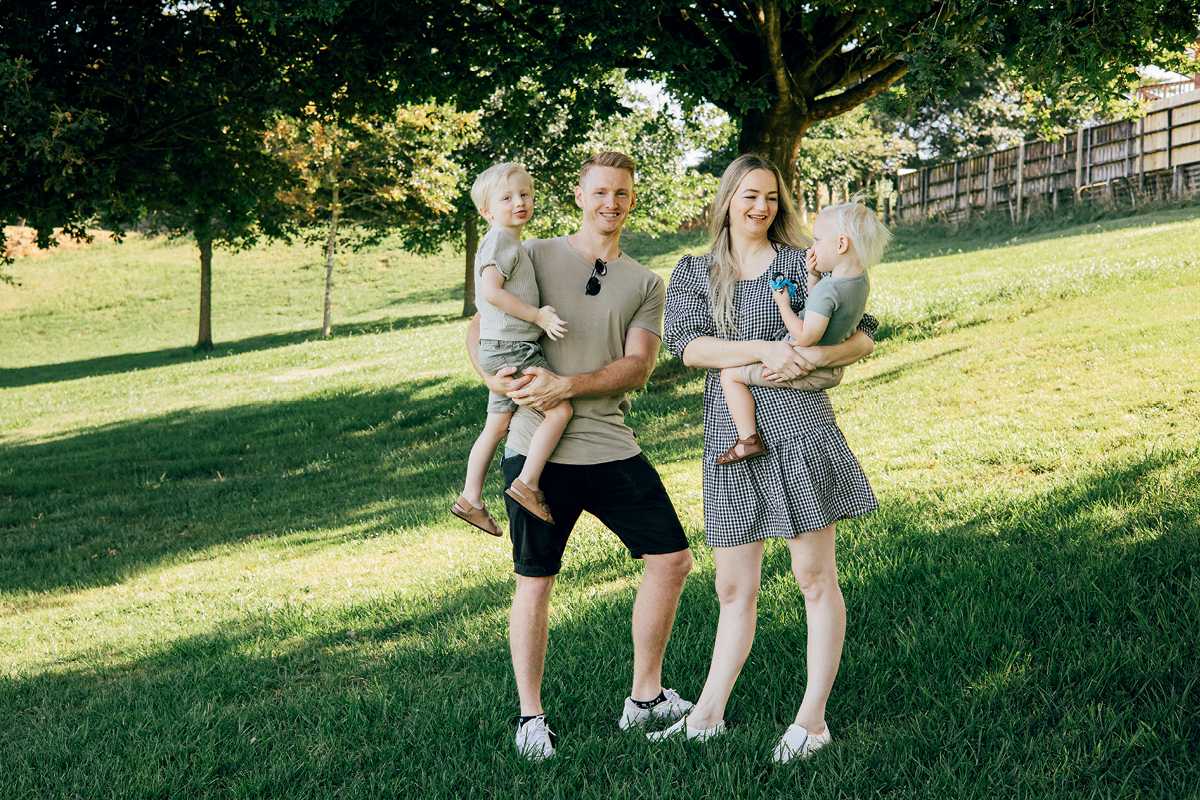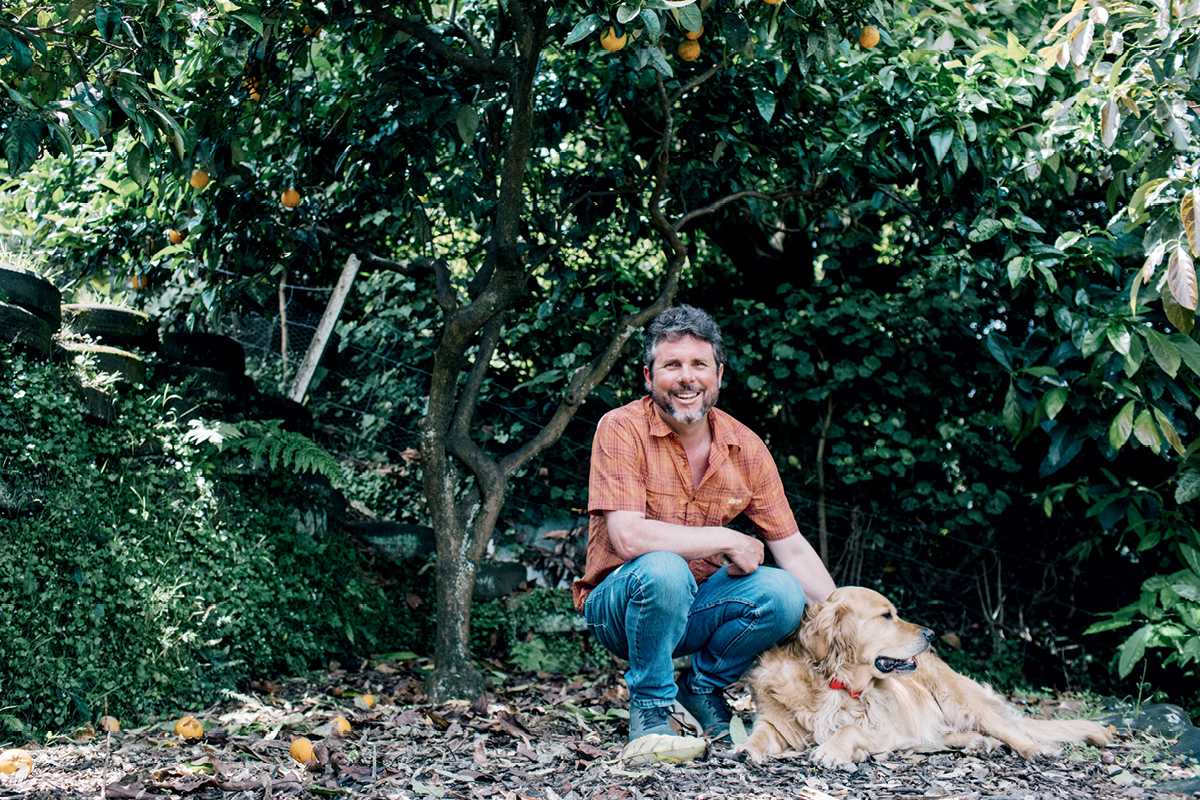
Developer Duo's Success
A young Auckland investor couple has taken their knowledge of property development to the masses and are now helping others realise their development dreams. By Joanna Jefferies. Photography by Stephanie Creagh
1 July 2019
What do you get when you pair an architect with a creative who was brought up by a property wheeler and dealer? In the case of architect Thomas Ward and real estate expert Jessica Driver, you have a recipe for property development success.
The couple met at university – he was studying engineering, which he later dropped in favour of architecture, and she was studying fine arts.
At just 24 years old, and both still completing study in Auckland, they decided to purchase their first investment property. It was 2010 and Driver’s dad, who had retired young through property investment, was an excellent advertisement for getting into the market.
Their first property purchase was a two-bedroom in St John’s, Auckland, and they lived in the property while renovating themselves. They added a third bedroom to increase equity, with the vague notion that they would then use the equity to buy again. It was the start of a buy, renovate while living on site, add value and extract equity formula that has stood them in good stead for the past nine years. Over that time they’ve averaged about two projects per year and they’ve had their hands dirty the whole time.

“We’ve learnt everything just from doing it. We’ve tried everything at least once – painting, skimming, piling and tiling …” says Driver
Locking In A Strategy
Following the St John’s renovation, they went into the next project without too much forethought. They bought an apartment “because we didn’t know what we were doing” and unfortunately it had leaks. They were quick to realise their mistake and sold the apartment seven months later, thankfully gaining a small profit of $14,000.
But it was an excellent lesson and it crystallised their strategy: each investment had to create equity and allow them to get into the next one.
So, following the sale they purchased again, this time in Point England, where they lived in and renovated an ex-state house. Purchased for $475,000, and sold privately less than a year later for $780,000 it provided the capital to forge ahead in their buy-and-hold operation. They were then able to purchase a property in Papakura. Their live-in and renovate strategy has been incredibly hard work. “I can hand on heart say that for the last six or seven years we’ve really slogged. We’ve worked every weekend, late nights, we’ve done it around finishing university and having full-time jobs and setting up our new business,” says Driver.
But, “We love it!” says Ward.
Upping The Ante
The Papakura property came with an unpleasant tenant experience and the property was soon sold, which freed up capital for a much more ambitious project: their first subdivision.
Driver spotted a property in Mangere on 600m2 with a brick and tile home at the front of a section and an exclassroom with an ablutions block at the back of the section, originally from the local school.
The couple secured the property for $690,000 and set about subdividing off the front three-bedroom house and converting the back house into a sixbedroom home at a cost of $250,000. It was their first foray into the development world and not without challenges. “I was working a full-time job and trying to project manage this subdivision and renovation and I’d go in there to on-site meetings at 8am before work. I’d do a full day of work and go back in there after work and there were some nights where we were painting until 11 or 12 o’clock at night,” says Ward. Post subdivision and renovations, the property has now been valued at $1,450,000 and the couple rent the front house for $600 and the six-bedroom house for $760 per week. The back property also has a resource consent for a sleepout, which is something they may add later on.


Deep Into Development
Driver was working at Property Ventures at this time and through her work she spotted an investment at Martin’s Green with an incredible yield. So they purchased the brand new property with three rental incomes, which makes $15,000 per year.
Following that purchase, and buoyed from the success of their Mangere subdivision they were able to buy a house on the North Shore on a 1366m2 section. The house was positioned at the front of the site, which allowed them to subdivide that house off, leaving room for two new sections at the back of the property. They now have the resource consent to build a house and a minor dwelling on each site and are currently going through the building consent process.
They bought the property in mid-2017 for $960,000 and renovated the front house while living on site (it was no picnic – the house was missing windows and the toilet was outdoors). The cost of the subdivision was $150,000 and they’re hoping to start building the new houses later this year.
Since that purchase, they bought a boarding house in Papatoetoe with a 10% yield and more recently a property in Ellerslie, which is adjacent to a park. They’ve done a minor renovation on the existing dwelling while living there with their three-year old daughter Florence (or Fluffy as they call her) who is no doubt already picking up on her parents’ trade. They are now drawing up plans to build four homes there – three of which they’ll sell and one of which they’ll hold.
The Family Business
Assessing a site for maximum development potential is now part of their bread and butter in their new architectural studio and property development business I Am Developer.
Starting the business a year ago was a no-brainer. “We talked about what kind of business we’d like to run and we really liked the idea of helping guide people through that property development process and lowering that barrier of entry,” says Driver.
The idea is that by engaging their team of property development professionals, anyone can develop land. The business model takes aspiring developers from feasibility right through to build.
“The whole premise is to encourage other people to stand up and take on the challenge of a development. If you get the right people around you, you can be a property developer. It is actually obtainable,” says Ward. The Unitary Plan also coincided with their new business and means further barriers to entry have been removed for aspiring developers. However, it also means an in depth knowledge of design controls and an ability to conceptualise site-specific solutions is crucial.
To illustrate the importance of bespoke design, the pair had one of their employees contact 10 house building and design companies for an idea of what their competition might design on their Ellerslie site. Of the 10, the most any of the companies was willing to build was two dwellings.
For Driver and Ward it was an indication that they offer an important service to the market and that many people are being under-sold on the development potential of their land.
Looking Ahead
Currently the business employs six staff and they have 34 units that are in the design and consenting process. But that doesn’t mean the pair’s investment activities are off the boil.
Recently they purchased two sections in Mangere and Otahuhu in a joint venture with family and the sites will be developed with four units on each and sold to Housing NZ.
But growing a business while raising a family isn’t quite enough for the property pair, who are now running seminars for aspiring investors and developers. Driver runs seminars under the banner Property Gals, which are aimed at young women who want to find a way into owning property.
While Ward recently ran a seminar alongside a planner, aimed at educating aspiring developers on the Unitary Plan.
Given property development is their passion, it’s no wonder they want to help get others into it. Says Ward: “We enjoy helping people strategise to work out what their long term objectives are. Do they want cashflow? Do they want passive income coming from rental properties? Or do they just want to make some money so they can move to the beach? Whatever it is we try and work it out and then guide them through the process”.


